COLLECTABLE STORIES: TITI - IN CYCLONE'S WAKE
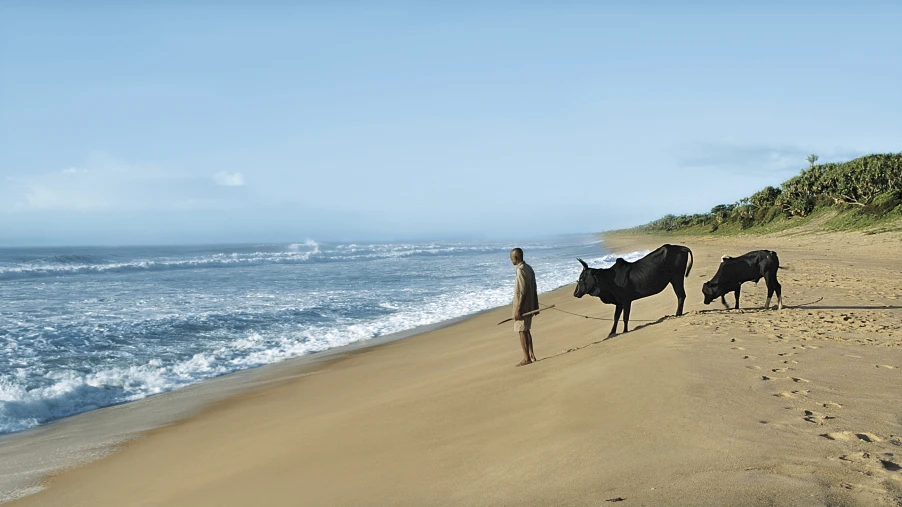
TITI - IN CYCLONE'S WAKE
Short Talk with Natasha Blatsiou (director)

Greece / 2023 / 28'06''
BEST DOCUMENTARY FILM Category
21st IN THE PALACE International Short Film Festival 2024
Synopsis: On climate change frontline, Madagascar has been hardly hit by successive cyclones. Titi, a Niger nurse, joins Médecins Sans Frontières, and reaches inaccessible rural communities to confront the alarmingly rising rates of child malnutrition. Her mental interlocutor is a wise Malagasi elder who watches helplessly ancient cultivating methods becoming out of date. In a world that is shaking and political governance is waning, Titi, like another Sisyphus, continues her labour unswervingly.
Biography: Natasha Blatsiou is a documentary filmmaker, writer and producer. Her short films have premiered and were awarded in international documentary festivals. She had a long-standing career as a journalist and created short videos for media outlets. Her award-winning short stories have been included in anthologies of fiction. Her most recent work includes Titi – In cyclone’s wake (ATHIFF, TiDF26, Roma Prisma Award, Psaroloco) and the sound documentary Listen to the River (honorary mention TiDF26).
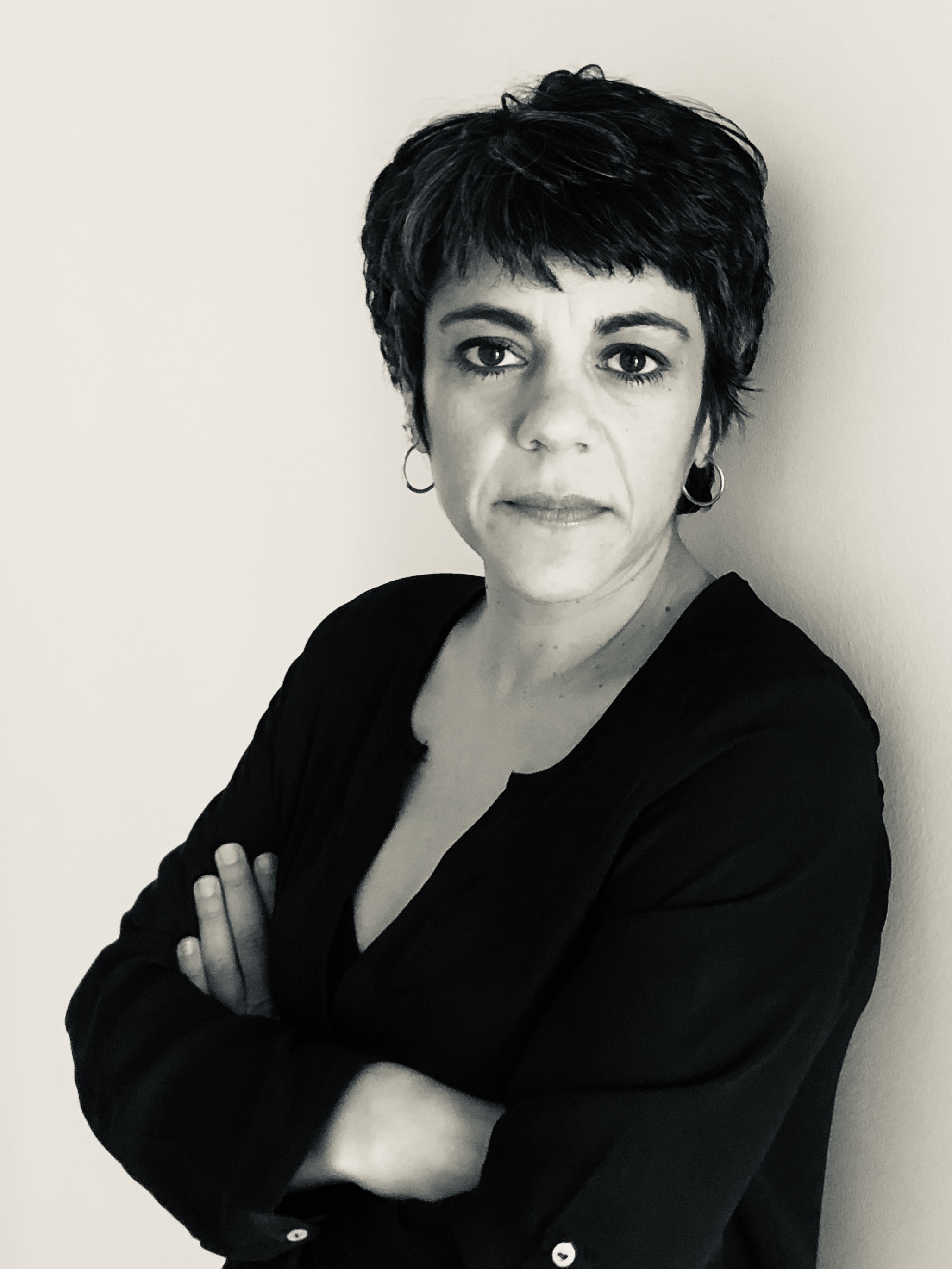
Natasha Blatsiou, director
Neda Valchela (autor): What was your experience staying in these villages, where destruction is an everyday thing?
Natasha Blatsiou (director): It’s southeastern Madagascar, where cyclones hit very often. In fact, it was the sixth cyclone in 14 months in the time that we visited them, and after our visit six more occurred. On one hand, we get a chance to raise awareness on the effects of the cyclones and give voice to people, who otherwise would not have the chance to speak. Also we can see what is coming next as the climate crisis is coming around all of us. On the other hand, we see communities, who are living with the basics: there are no roads, the houses are wooden and unstable. There were many lessons that we learned - one of them that life could be simpler. Of course, there were people on the first line, like Titi, who seemed to carry the burden of the world on her shoulders.
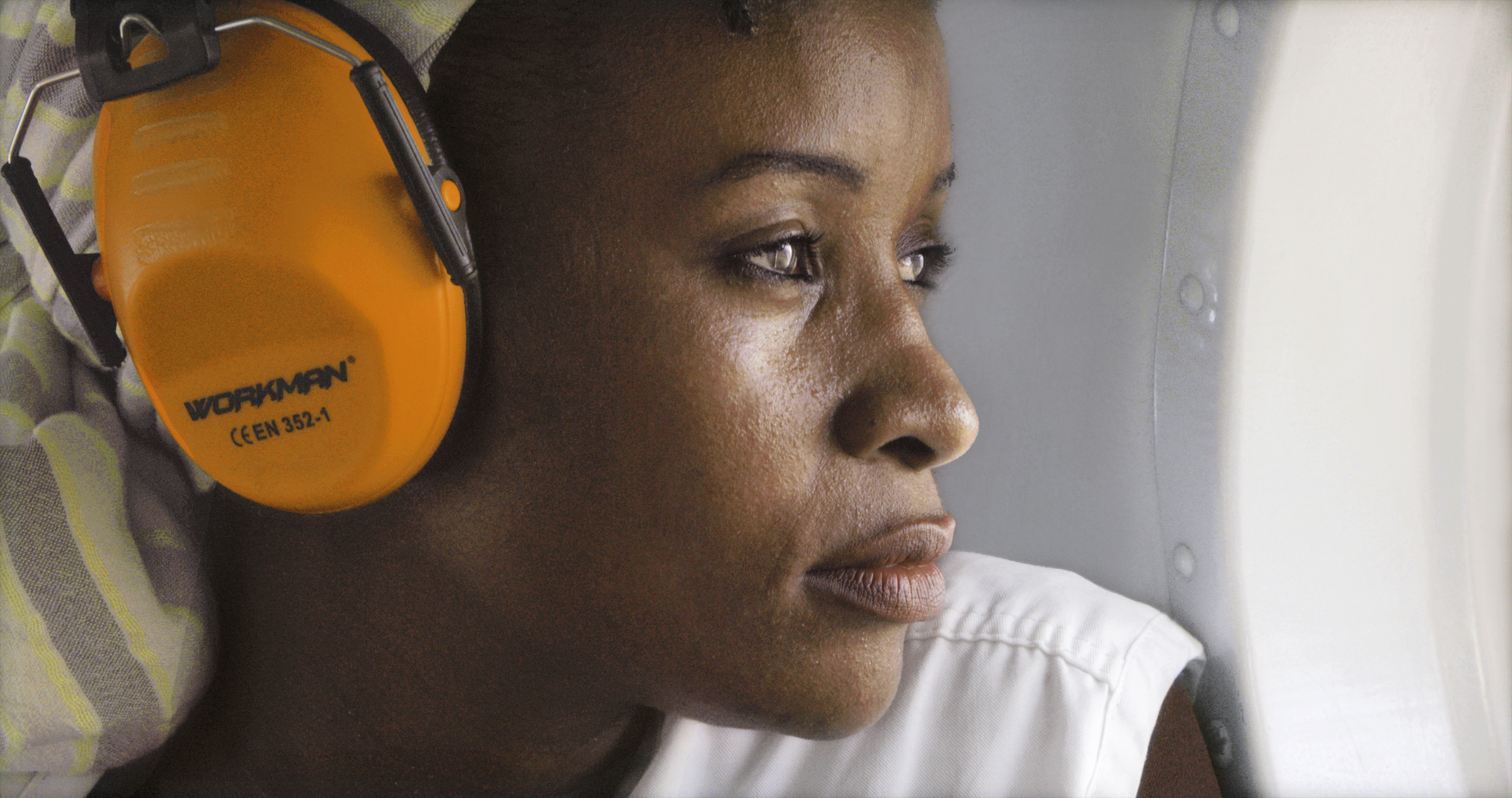
Neda Valcheva: Did something else happen there while filming that you did not include in the documentary?
Natasha Blatsiou: One of the scenes, that was not included in the film, was one of the moments that I really felt crossed. We went to the ocean with one fisherman and spent a couple of hours with him, while he was trying to catch a fish with his little net. Three hours later he only got one small fish to feed his family. It was heartbreaking. You see that the people are struggling to survive, and it is not that they are not trying, but the nature world is hard.
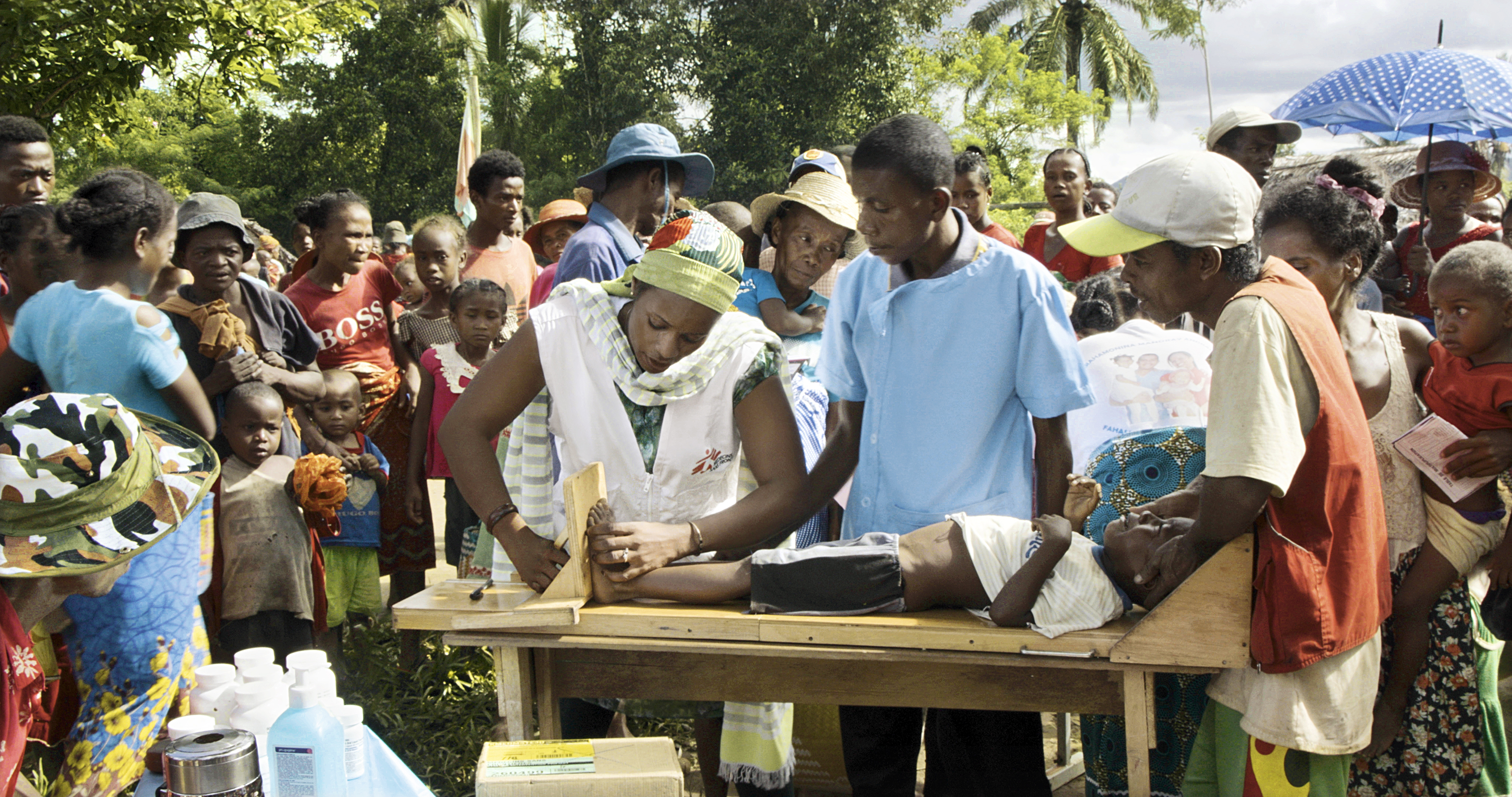
Author's view (Kaloyan Vasilev):
After Madagascar was ravaged by six cyclones in the span of fourteen months, the Madagascan people, especially those in inaccessible rural communities, found themselves in severe need of medical attention. Titi - In Cyclone’s Wake is a 28-minute Greek documentary by Natasha Blatsiou, in which Médecins Sans Frontières (Doctors Without Borders) takes us on a journey with Nigerian nurse Titi as she does everything in her power to help the Malagasy children. Blatsiou aims to show us at least a small part of the harsh conditions in which these children are forced to survive, and thus creates an emotionally engaging and awareness-raising experience.
The mission of the film is clear. Both Titi and the director are drawn into hidden and underprivileged places. They go where no one else goes: where destruction has become an everyday reality. They want to provide medical aid or give a voice to those who are suffering and forgotten. The film explains how cyclones destroy not only animals, crops, and houses but also the fabric of society itself, forcing the locals to restart their lives from scratch every time disaster strikes. To some extent, we are witnessing a world not too far removed from that depicted in Harmony Korine’s Gummo (1997), a fictional city previously devastated by a cyclone, where chaos and neglect now reign. However, in this case, it is all real. It is projects such as these guided by Blatsiou and Titi which enable disadvantaged communities to avoid even deeper crises.
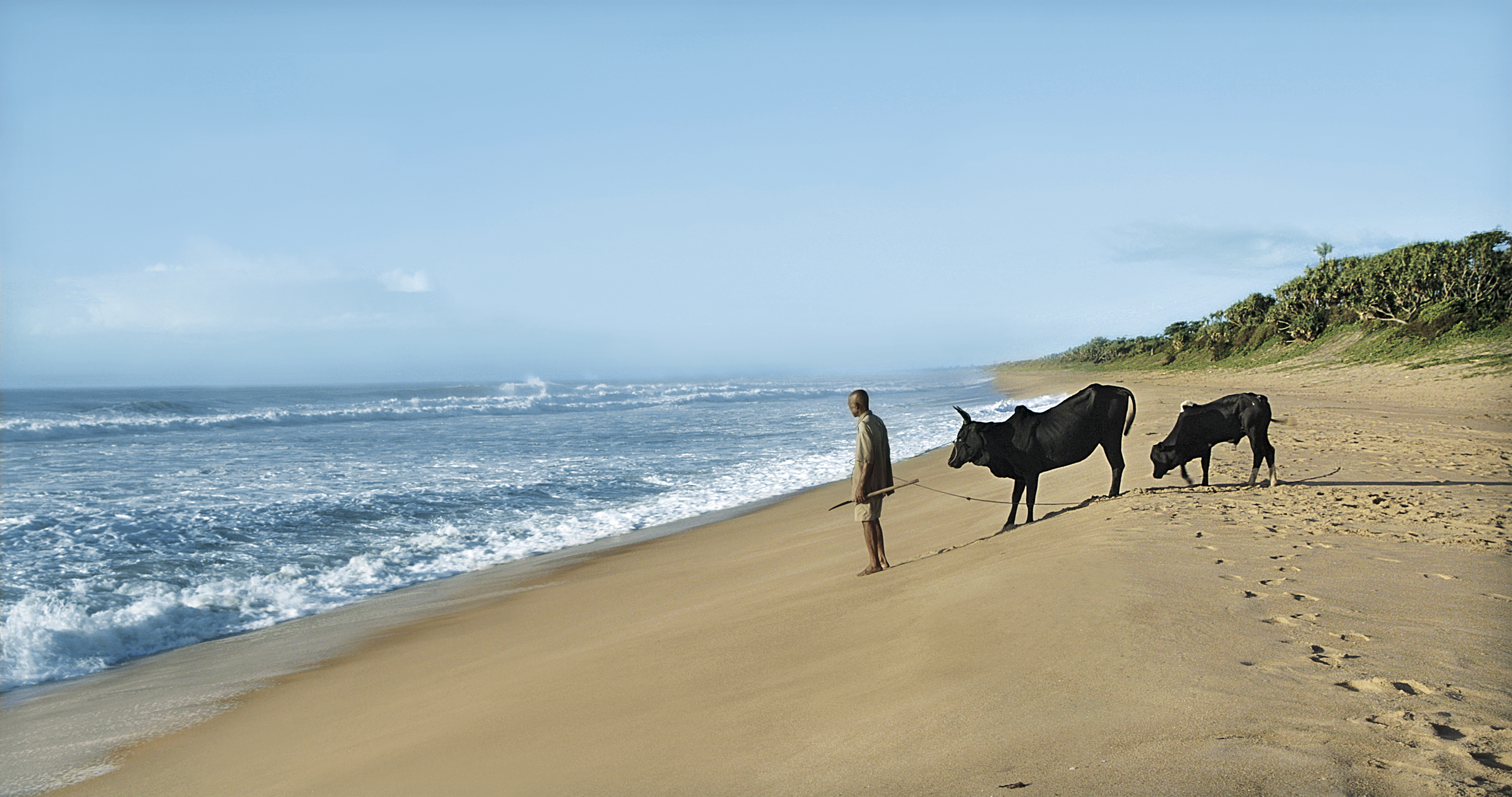
At the beginning of the film when Titi arrives on the east coast, we see a huge number of locals, consisting mainly of young people and small children, waiting for her plane to land. While they remain a strong presence throughout the film, we are introduced to only one person in particular. This is King Boto Zandriny who serves as a representative of the community. He recalls witnessing his first cyclone in 1969, explaining how these disasters have become a relentless cycle ever since. Zandriny goes on to elaborate how such issues affect the local people in a discourse which is both fascinating and horrifying. The entire film is shot with a handheld camera, which, along with alternating close-up shots—revealing small yet significant details—and wide shots which show the bigger picture. This technique creates a dynamic and immersive atmosphere.
Titi - In Cyclone’s Wake is more than just a documentary—it is a poignant testament to resilience and humanitarian dedication. Through Natasha Blatsiou’s raw and immersive filmmaking, we are not only witnessing the devastating aftermath of the cyclones but also the unwavering efforts of individuals like Titi who bring hope to the most vulnerable. By shedding light on these often-overlooked communities, the film compels us to reflect on both the fragility of life and the power of compassion in the face of adversity.






